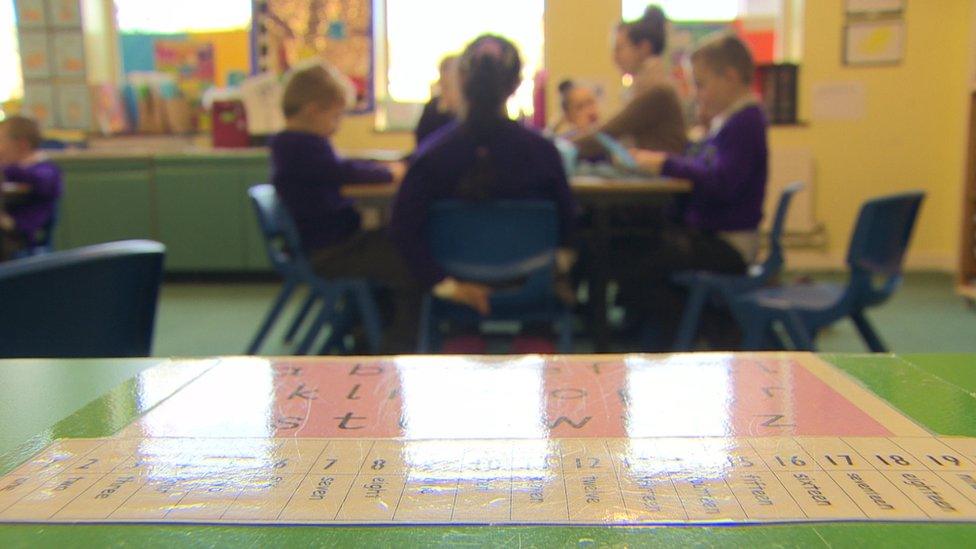Sustainable schools policy must be reviewed: PAC
- Published

The committee is calling for up-to-date school enrolment figures to be gathered "as a matter of urgency"
There should be a "root and branch" review of the Department of Education's sustainable schools policy, a Stormont committee has said.
That is a key department policy which decides whether schools should close or not.
The Public Accounts Committee (PAC) said that the policy is undermined by "flawed and inaccurate data".
Education Minister John O'Dowd said he would consider what additional action, if any, needed to be taken.
He said: "The sustainable schools policy has been tested in court on several occasions and found to be a competent policy upon which to make decisions both about the future of individual schools and area planning more widely.
"I have already accepted the eight recommendations within the Northern Ireland Audit Office report and these are being progressed by my department."
The policy is also used to plan educational provision across Northern Ireland.
The PAC also said that the number of empty places in schools in Northern Ireland is "likely to be overstated".
A Northern Ireland Audit Office (NIAO) report previously found the number of empty places totalled over 71,000, about 20% of capacity.
However, the NIAO also said that the department did not have a standard method for calculating school capacity.
The PAC said it was "unacceptable" that the department could not provide accurate numbers of surplus places.
The committee is calling for up-to-date school enrolment figures to be gathered "as a matter of urgency".
The PAC report also said the department took too long to take decisions on whether to close schools, and whether suspended teachers should be dismissed.
It found that 106 teachers had been suspended during the past five years, but only six had been dismissed.
The department paid £4.2m on wages, national insurance and pension contributions for suspended teachers during that period.
The committee also concluded that Northern Ireland's education system was still failing too many young people.